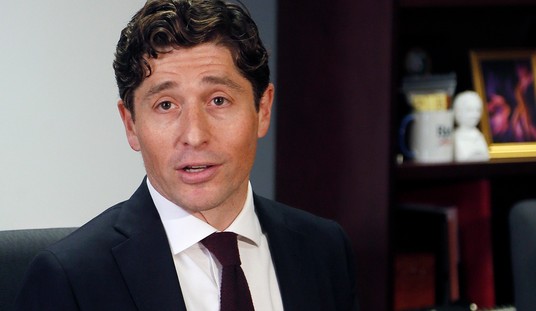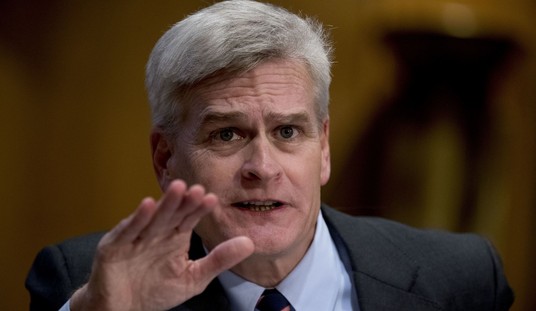Is Christianity compatible with libertarianism? It’s a question many have pondered over the history of the liberty movement. As both a Christian and a libertarian, it is a subject that I have often discussed. I do believe the ideology is very much compatible with the teachings of Christ.
But I also have seen many who assert that it is not for various reasons, most of which show a misunderstanding of what Christian libertarians tend to believe.
My colleague Brandon Morse wrote a piece on this very issue and it inspired me to chime in on some of the arguments people have made particularly about how a Christian libertarian might address the sin issue. In his piece, Morse wrote:
Libertarians often find themselves at odds with the world because it refuses to buy into the collectivist claptrap it tries to force on people. The largest example of this is how a libertarian may recognize levels of government and the authority it holds, but he or she doesn’t hold the government as the ultimate authority. That obligation belongs to the individual in the mind of the libertarian.
While some would then conclude that libertarianism is an obedience to the self, if we go a bit deeper we’ll start to see the teachings of Christ.
Christ made it clear that while you may live under a government, it’s not a god to give yourself to and worship. There is only one God, and you can either serve Him or serve that false god that is, at the end of the day, a fallible group of people who ultimately don’t care about you. You’ll often find that socialism and communism are two ideologies that treat government as infallible entities you should give your trust to, but ultimately falters and fails, ruining or ending the lives of millions along the way.
One of the most common arguments I have seen against the idea that Christianity and libertarianism are compatible is that the ideology’s adherents have more of a “live and let live” approach to life. They correctly point out that we believe the government should address only crimes that harm others.
Our mantra essentially boils down to “don’t attack people and don’t steal their stuff.” This is what is known as the non-aggression principle, which says we should not initiate violence against others who are not threatening anyone else or their property.
This is where we get into “victimless crimes,” which most in the liberty moment believe should not be punished by the state.
However, these beliefs have led some to believe that all behavior, as long as it does not harm others, is permissible—and amoral at worst. I have seen many put forth the notion that we do not view issues like drug use, prostitution, and other behaviors as immoral.
This is not the case.
As a Christian, I believe many behaviors are immoral. I do not believe it is moral to get addicted to drugs. I do not believe it is moral for one to sell their bodies for money. I also believe adultery is wrong. In fact, I think being rude to servers at a restaurant is also immoral.
The difference between the Christian libertarian and others is that we do not believe it is the government’s place to regulate these behaviors, nor do we believe it is the most effective solution to solving the problems they create. I don’t need to go over the horrible history of the war on drugs to show how inept the state can be at solving problems, do I? In a nutshell, much of the rift between Christian libertarian folks and the rest of the country is predicated on what we believe the government should be allowed to use the threat of physical violence to address.
If someone assaults an old lady, I wholeheartedly support sending men with guns and badges to throw that individual in a cage – for a long time. If someone defrauds innocent people out of their life savings, I have no qualms with the state punishing that individual. Why? Because people who engage in these behaviors are violating the natural rights of another. If a governing authority is going to exist, it should only exist to protect our rights. It should do little more than that.
As Thomas Paine articulated in his pamphlet “Common Sense,” “The great end of government is to protect the natural and inalienable rights of man; and whenever these rights are violated, the government ceases to have a right to exist.”
On the other hand, behaviors that do not violate the rights of another should not involve government-sponsored force. It is why most Americans would not support legislation allowing the state to arrest people for committing adultery, which is highly immoral.
Moreover, when it comes to issues like prostitution, drug addiction, and others, we as a society are better equipped to solve these problems. I would trust a Christian ministry to help lead people out of prostitution and bondage to narcotics before I would the government, whose solution is to simply lock people up. It seems there was a time in our country when the church took a more active role in addressing societal ills.
Through the power of the Holy Spirit, I believe we as Christians are the ones who bear the responsibility for helping people in need, not the almighty state. Unfortunately, too many of us, regardless of political affiliation, have replaced God with the government, and even a cursory glance at the state of our society shows what destruction this has wrought.
As followers of Christ, we must recognize that it is our responsibility to help our fellow man and deal with problems in the culture. Jesus never taught that we were supposed to rely on the state to feed the hungry and clothe the poor. He charged we the people with that mission. Too much reliance on the government has caused even the most devout of Christians to miss this point. If we want a society that is free, just, and compassionate, it is up to us, not the people who occupy Congress and the White House.














